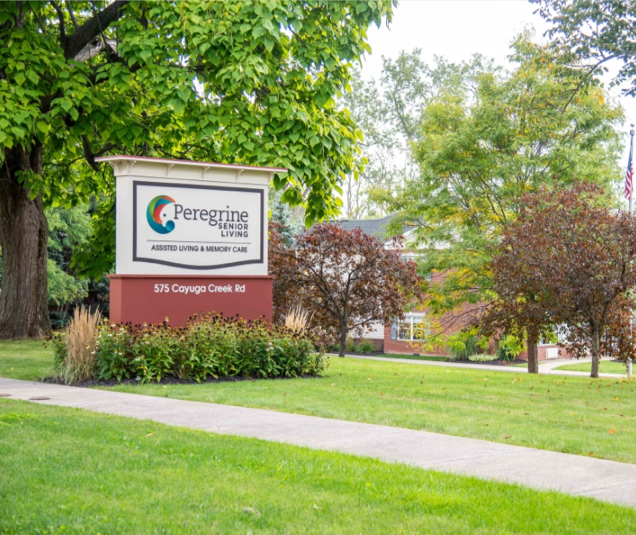As your loved one gets older, living independently can become increasingly difficult. This could be due to struggles with day-to-day tasks or cognitive health issues like Alzheimer’s and dementia. Regardless of the situation, you want to give your loved one superior care and the best quality of life. Often, this means considering long-term care solutions.
The two main kinds of care are assisted living, or personal care, and memory care—however, what sets them apart from each other?
Assisted living offers a unique care approach, fostering independence in seniors while providing assistance with certain everyday functions. On the other hand, memory care is an all-encompassing service, curated to cater to individuals experiencing cognitive deterioration from Alzheimer’s or dementia.
Assisted Living
Assisted living or personal care communities are the perfect solution for enhancing your loved one’s lifestyle while simultaneously improving their overall quality of life. These communities offer a nurturing living environment for older adults who need help with one or more everyday tasks (ADLs), yet still possess some mobility and don’t necessitate round-the-clock supervision.
Residents of such communities maintain a significant level of independence while enjoying a suite of services designed to promote healthy living, social engagement, entertainment, and additional support for their preferred lifestyle.
Although the specific amenities may differ among communities, they often encompass meals and snacks, laundry and cleaning services, grooming assistance, and medication supervision.
Residents generally have their individually assigned living spaces, house maintenance services, and an emergency alert mechanism.
Many establishments also arrange scheduled transportation (such as to medical checkups) and provide a plethora of engaging activities and expeditions that encourage residents to mingle and partake in mental stimulation. These activities can significantly differ between communities, making it crucial to select a residence that aligns with your loved one’s interests.
Memory Care
Memory care communities serve as a refined care option, specifically curated for those grappling with cognitive issues associated with Alzheimer’s or dementia. These communities provide an enhanced level of care that goes beyond what personal care communities offer.
At memory care communities, specialized support is a prime focus, with safety and security being of utmost importance. With a team of specially trained staff available round the clock, your loved ones will be well-looked after.
Understanding the unique challenges faced by those living with dementia, these communities are designed to ensure maximum security for its residents. This involves an intelligently designed infrastructure that reduces confusion, with features such as enclosed outdoor gardens that offer communal spaces while eliminating risks like unsupervised wandering.
In memory care, each day is crafted to engage those dealing with cognitive degeneration. The activities they offer have a dual role, to stimulate cognitive functions and foster a sense of well-being and relaxation. They can potentially slow down the cognitive decline. Activities span music therapy, artistic pursuits, movie nights, gardening, and more.
For those experiencing moderate to severe cognitive decline and incapable of independent living, memory care communities often prove to be the most suitable choice.

When to Consider Each Type of Care
Indicators exist that may guide you in determining if a transition to long-term care is fitting for your loved one. Let’s explore each care option separately.
Should My Loved One Consider Assisted Living?
If your dear one is finding it difficult to manage daily tasks such as dressing or bathing, or requires more socialization opportunities, it may be time to contemplate a shift to personal care. Difficulty in maintaining the home or inability to live independently can also be indicators of this need. Further factors to consider might include:
- Are you and your family capable of providing adequate care to your loved one without risking your own health and well-being?
- Has the personal care option been recommended by your loved one’s doctor?
Remember, switching to long-term care is a significant choice. Engage in a conversation with your loved one regarding their preferences and necessities, and aim to select a community that aligns with their benefit, offering them desirable amenities, engaging activities, and ample social opportunities.
Should My Loved One Consider Memory Care?
The determination of whether your loved one needs memory care hinges on their cognitive state.
Telltale signs that might indicate the necessity of memory care are:
- Challenges with daily tasks, like forgetting to eat or drink
- Shifts in mood and behavior
- Alterations in personality
- An increased tendency in your loved one to wander
- An inability to upkeep their health, such as forgetting medication, or deteriorating living conditions
Medical professionals are very capable of spotting dementia symptoms, so if you’re worried, schedule a visit with your loved one’s healthcare provider for a skilled medical assessment.
Choose the Appropriate Level of Care
Selecting a care service that guarantees your loved one’s optimal living conditions is vital. Personal care caters specifically to seniors who may find it challenging to navigate through routine tasks, while memory care is tailored for individuals grappling with cognitive impairments. Each care setting is structured to meet the special needs of its resident population, offering targeted amenities.
At Peregrine Senior Living at Cheektowaga, we pledge to assist you in identifying an environment that promotes growth for your loved one. Get in touch today to explore our personal and memory care facilities.












No more posts